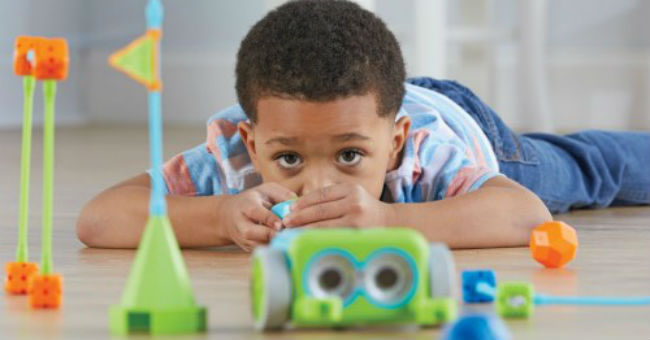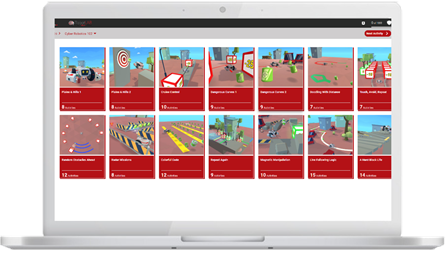Computational thinking can be related to computers and computer science, as its name would suggest. But, more broadly, computational thinking is the ability to analyze and solve problems in a logical and organized way. Unsurprisingly, computational thinking is a higher priority in education today than it was 30 years ago. In our ever-evolving world, the leaders of tomorrow will be required to use computational thinking on a daily basis. Therefore, it’s incredibly important to train young children to develop these skills early on.

How can we nurture computational thinking in early childhood?
There are a multitude of activities for children ages 4-7 that can develop foundational computational thinking abilities. Here we list our favorites:
Play brain teasers
Brain teasers are a fun way to help children develop their computational thinking skills. Brain teasers can be found on cereal boxes, children’s menus at restaurants, in children’s magazines, and elsewhere.
Use logic apps
Children love spending time using electronic devices, so why not make this time productive? Apps such as Alien Assignment and Bedtime Math are specifically designed to help children develop their computation thinking skills.
Act out familiar tasks
Acting out familiar tasks actually helps children become familiar with the concept of algorithms, which are basically sets of instructions in a particular order used to complete a task. As the child acts out a task, such as putting on his shoes, for example, ask him to describe each action as he performs it.
Create pattern-based crafts
Pattern-based crafts such as bead kits and color-number kits for painting or coloring can be used as well. In addition to actual arts and crafts, some children’s apps allow them to create these pattern-based crafts on a screen.
Play trading card games
Trading card games allow children to become familiar with the concept of a database. Whether they realize it or not, children that play trading card games such as Pokémon have stored within their minds a vast database of all possible cards, including the strength and hierarchies of each as they relate to the other cards.
Take surveys
Children love surveying others on their favorite colors, favorite flavors of ice cream, etc. Teaching a child to gather this data and compile it to draw conclusions (What is the most common favorite color?) is extremely helpful.
Use physical puzzle toys
Physical puzzle toys such as Rubik’s Cubes and Puzzle Balls are great for children who love to fidget. These toys will keep their minds and their hands occupied.
Read picture books with sequences
Ask children about the sequence of events in their picture books. Inquire what would happen if the sequence changed. For instance, what would happen to a certain character if he had gone to his grandma’s house before he went to the swimming pool? Understanding sequences and the effects of changing a sequence is a foundational concept for programming in computer science.
Play Guess Who and Clue Jr.
Everyone loves these games! These classic children’s games allow children to solve problems and logically eliminate information to arrive at a conclusion. Adults will love playing them, too.
Developing computational thinking in your child doesn’t have to be boring- in fact, it can be rather fun. While you and your child are enjoying these fun activities together, think of how much you are helping to develop your child’s future skills!
Keep teaching and learning during COVID-19 with RobotLAB and CoderZ!

CoderZ is an online educational environment that improves students 21st century skills, while they are having fun programming their own virtual cyber robot. CoderZ and RobotLAB has different lessons to do at home! Check them out Here

